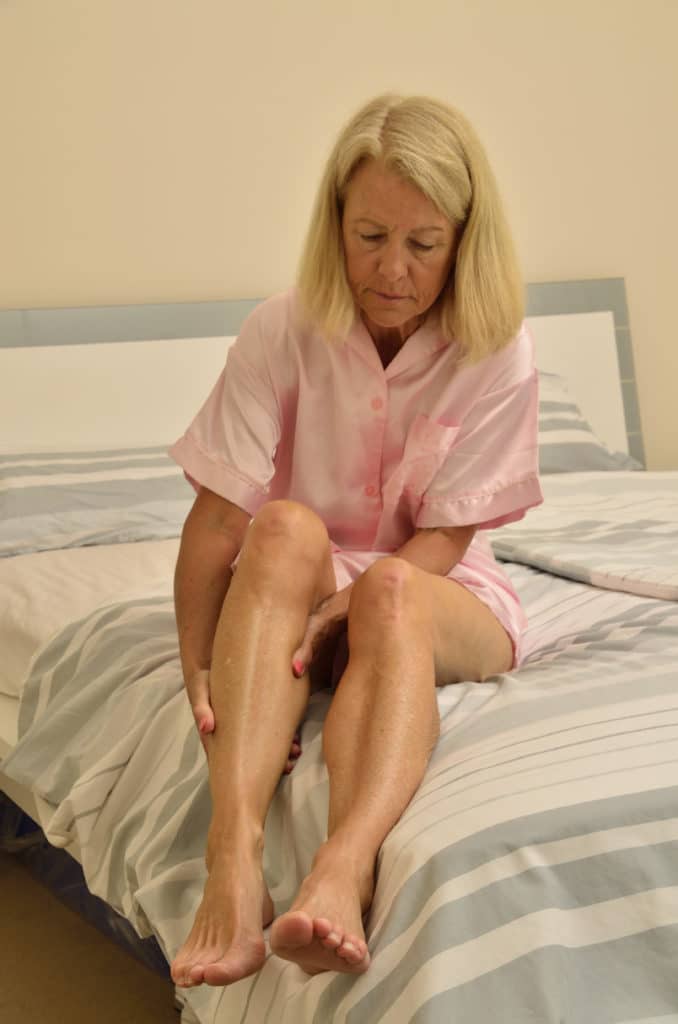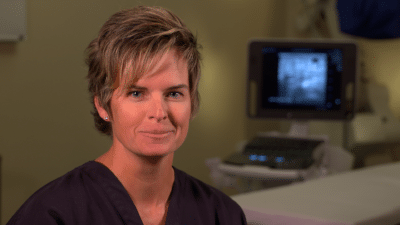
Why Do Varicose Veins Hurt Most at Night?
If you think that your varicose veins hurt more at night, you are probably not imagining this. The reason why, in a word, is contrast. This might make more sense once it is explained...
Especially since the advent of electrical lights, it can be easy to forget that nighttime is for rest. As daylight wanes, everything in nature gets quieter and darker and cooler. Only we humans maintain our bustling pace right up until the point where we drop into bed. (Then we twiddle our thumbs while we wait for sleep to come. Or we wake at odd hours, minds already racing).
Even on the cellular level, our bodies are winding down as the evening progresses, preparing for a quiet restorative time.
Symptoms of Varicose Veins Increase During Day
Throughout the course of the day, though, varicose vein pain and discomfort tends to get amped up. Gravity pulls blood against compromised valves and leads it to pool in the lower legs. Agents of inflammation also get concentrated at these sites, and the nerve receptors that register pain start to fire more furiously. This can be tolerable—as long as our brains are busy and distracted from the leg pain.
So really...why do varicose veins hurt most at night?
When our bodies are trying to rest, especially against the backdrop of the dark and the quiet, every sensation seems magnified: bumps, sounds, lights—and these throbbing aches and pains.
Varicose veins and leg pain plus leg cramps can make it difficult to get restful sleep. It can take hours for that discomfort to ease off as lymph and other metabolic substances are taken back up into circulation. And if you happen to point your toes as you stretch out in your sleep, you might be awakened by the startling discomfort of a muscle cramp. Often by the time equilibrium is restored, it is time to get up and start the whole process again.
There Are Things You Can Do To Ease Nighttime Varicose Vein Pain:
- First of all, if varicose vein pain is keeping you up at night, or if you are experiencing any of the other symptoms of chronic venous insufficiency, it is time to have your vascular health checked by a qualified vein specialist.
- Ease into the evening. Put your legs up for a bit, especially at the end of the day, and give your veins a chance to calm down before you go to bed. Perform a little local self-massage to encourage circulation and take some pressure off your veins.
- Perform some gentle exercise. Walking, yoga and other gentle forms of exercise are great for relaxing the entire body and promoting healthy respiration and circulation of blood and lymph.
- Ensure proper hydration. Drinking adequate water is key for promoting healthy circulation, keeping blood vessels and tissues healthy and pliable, and for preventing muscle cramps.
- Eat a healthy diet, full of vitamins, minerals and macronutrients. There is not enough space here to say all that needs to be said about the importance of taking care of your body through the food you eat. However, there are lots of great nutrition resources out there.
- Stretch out those muscles. Tight and constricted muscles prevent the healthy circulation of blood and lymphatic fluid through the legs. And tight muscles are more likely to ache and to cramp up.
Of course, a qualified vein doctor will have more suggestions for easing and eliminating the discomfort of your enlarged veins. Using the results from a detailed examination and duplex ultrasound, they can tailor treatment options for you, and have you sleeping comfortably through the night in very little time.
Entrevista con el Dr. Rose Durante nuestras entrevistas en video con Jilanne Rose le pedimos que nos contara algunas historias sobre sus experiencias en el tratamiento de las varices a lo largo de los años. Esta historia se trata de un paciente que se había despojado de las venas realizadas hace años y tenía miedo…
Read MoreDr. Rose Interview During our video interviews with Jilanne Rose we asked her to tell us some stories about her experiences in Varicose Veins Treatment over the years. This story is about a patient who had vein stripping performed years ago and was afraid of going through the process again because of the pain she…
Read MorePregunta: ¿puede usted conseguir congestión pélvica cuando usted nunca ha estado embarazado, y puede interferir con flujo de la orina?
Read MoreQuestion: Can you get pelvic congestion when you have never been pregnant, and can it interfere with urine flow? Answer: Pelvic congestion syndrome, although uncommon, can occur in women who have not been pregnant. These varicose veins in the lower abdomen typically do not cause problems with urination. Best to be evaluated by a gynecologist…
Read MorePregunta: tengo dolor y venas de araña apareciendo sobre todo en la zona del muslo después de mi ablación que fue hace 2 meses. GSV cerrado y SSV bien. Estoy usando 20-30 mmHG medias de rodilla-alta todos los días. ¿Cuál es la causa?
Read MorePregunta: tuve tratamiento de la escleroterapia de la espuma para la vena varicosa hace 2 meses por una técnica llamada catéter de flebogrif y leí que puede causar complicaciones como el movimiento. ¿Sigue siendo probable el riesgo? ¿Y qué sucede con la sustancia química usada en la espuma después de la inyección, permanece en el…
Read MoreQuestion: I had foam sclerotherapy treatment for varicose vein 2 months ago by a technique called flebogrif catheter and I read that it may cause complications like stroke. Is the risk still probable? And what happens to the chemical substance used on the foam after the injection, does it remain in the blood stream and…
Read MoreQuestion: I have pain and spider veins popping up mostly in the thigh area after my ablation which was 2 months ago. GSV closed and SSV ok. I am wearing 20-30 mmHG knee-high stockings every day. What is the cause?
Read MorePregunta: ¿Cuánto tiempo toma la cirugía de la vena varicosa en sí misma y cuánto hora debo esperar para la recuperación?
Read MorePregunta: ¿Qué puede decirme un examen de reflujo venoso? ¿Cómo mide el tratamiento la efectividad de mis venas?
Read More
